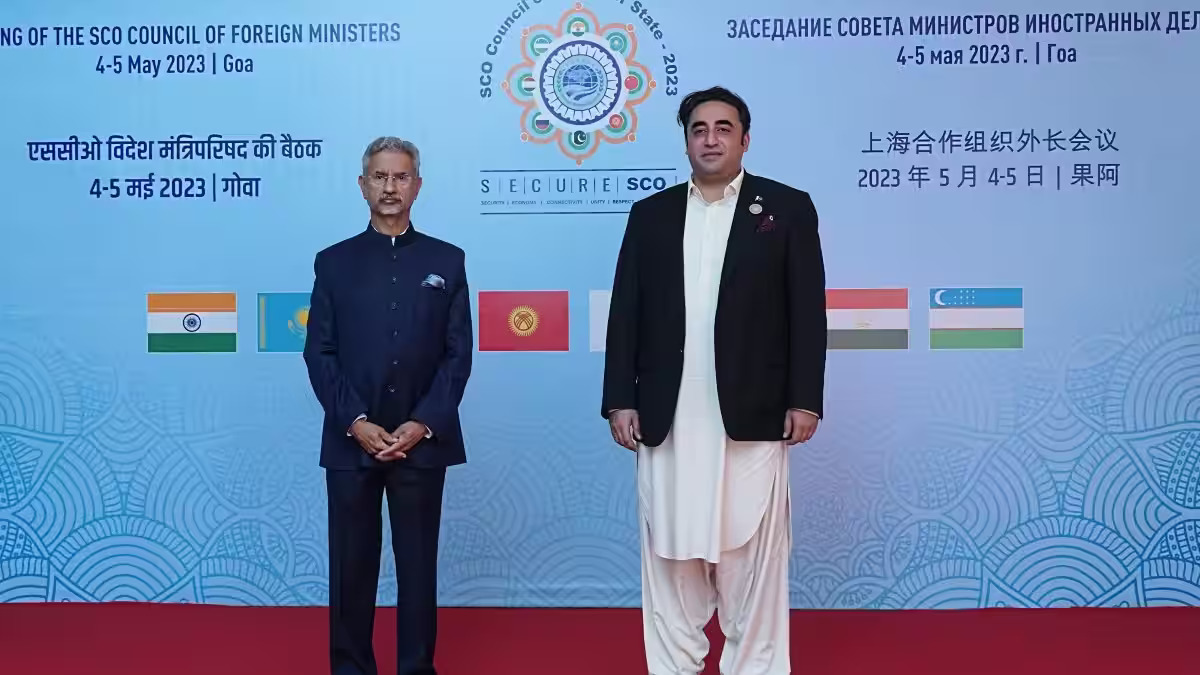External Affairs Minister Dr. S. Jaishankar’s tough talk during a meeting with his Pakistani counterpart, Shah Mahmood Qureshi, has ignited a heated debate over whether it showcased strength or weakness in India’s diplomacy. The high-level exchange took place on the sidelines of a regional summit, where the two leaders engaged in frank discussions on contentious issues between the two neighboring nations.
The meeting between Dr. Jaishankar and Shah Mahmood Qureshi was seen as an attempt to address the longstanding issues between India and Pakistan, including cross-border terrorism and the Kashmir dispute. The two diplomats were known for their candid exchange of views, expressing their respective countries’ positions on sensitive matters.
While some hailed Dr. Jaishankar’s assertive stance as a display of India’s diplomatic strength and commitment to safeguarding its interests, others criticized it, arguing that such direct confrontation may hinder efforts to find common ground and foster peaceful dialogue.
Speaking to the media after the meeting, Dr. Jaishankar defended his approach, stating that India’s firm position on issues of national importance should not be mistaken for weakness. He asserted that engaging in direct and honest discussions was essential to communicate India’s concerns and expectations clearly.
“I believe in direct and open communication. We cannot ignore the challenges we face, and we must address them head-on. This is not a sign of weakness; it is a reflection of our commitment to finding lasting solutions to outstanding issues,” said Dr. Jaishankar.
However, some critics argue that such a confrontational approach may lead to further escalation of tensions between India and Pakistan, and it may be more productive to adopt a more measured and conciliatory approach in addressing the complex issues.
Former diplomat Ramesh Kapoor opined, “While it is crucial to assert our nation’s interests, a purely tough talk strategy might not always yield positive results. Diplomacy requires a delicate balance of assertiveness and flexibility to achieve lasting peace.”
The debate over the effectiveness of Dr. Jaishankar’s approach highlights the challenges and complexities of diplomatic engagements between India and Pakistan. The history of the two countries has been marked by periods of tension and conflict, and finding a path to constructive dialogue has proven elusive.
In response to the criticism, the Ministry of External Affairs issued a statement reiterating India’s commitment to peaceful resolution and dialogue. The statement emphasized that assertiveness in diplomatic interactions does not indicate a lack of willingness to engage constructively with Pakistan on matters of mutual concern.
As India’s diplomatic engagements continue, the debate over the merits of tough talk versus more conciliatory approaches is likely to persist. Finding common ground and building bridges of understanding between the two nuclear-armed neighbors remains a complex and challenging task, and the effectiveness of various diplomatic strategies will be closely watched by observers worldwide.










